The big news in gaming this week is that Embracer Group has gone on yet another one of its spending sprees. This time around it has picked up everything from Tolkien’s Middle-Earth (from film to games), to Snow Bros. (Toaplan, in the company’s first-ever Japanese acquisition), and Limited Run Games (the publisher of short-run physical editions). The response to this news was a lot of chatter on social media and the like and far too much of it was enthusiastic. This is not good. Not for us, as the audience that cares about artistry in video games. Nor for the consumers of content. Not even for the games industry itself. Embracer Group is one of the biggest threats of all to games, and we need to start acknowledging that.
“Ten operative groups. 120 studios. Over 850 franchises,” the company proudly proclaims on its website. The chances are that if you list out our favourite 20 video games of all time, Embracer now owns at least some of them. A lot of what the company sits on is small and “indie.” Some, however, is very big, and since the company does now own The Hobbit, I’ll put this in Tolkien terms – like Smaug, this trash pile of a company sits on an absolutely mammoth horde of gold and has no intention of sharing.
I made a video about why acquisitions suck for the industry, so I’m not going to tread over that ground again – just watch the video below. However, to quickly build on it, there are relatively benign examples of acquisitions, and there are absolutely nasty examples that enter the territory of corporate dystopia. One company acquiring another because it adds to the parent company’s capabilities and provides the company with a strategic resource to make its products better is a relatively benign acquisition. Nintendo acquiring an animation studio makes sense for a company that is, increasingly, relying on the value of its character IP and needs to start making like Disney and Mickey Mouse.
Then there are companies that acquire purely for growth. Companies that have no significant strategic interest in what they are acquiring and are simply looking to gather and horde. Companies that you just know have board meetings where every second word spoken is “content.” Companies like Embracer.
There is no way to make “Ten operative groups, 120 studios and 850 franchises” a cohesive vision. Embracer didn’t acquire Snow Bros., Lord of the Rings and Limited Run Games because it sees some kind of potential for an open world RPG featuring the snow guys teaming up with Frodo to lob snowballs at Sauron, which they will then distribute via a collector’s edition to 1,000 people worldwide. There is nothing that links those properties to any company vision other than “make money, horde money, more and more money.” They were bought because they were IP and Embracer saw dollars. That’s it.
Objectively, as a corporate strategy, doing this works, if for no other reason than you can play some mad-awesome accounting games. You buy a lot of stuff and you start making more money, and that makes the percentages on the annual report look really positive. Embracer’s most recent financial results, posted to its website yesterday, confirm this: “Net sales increased by 107 per cent to SEK 7,118 million (3,433)”. Yes, of course, net sales have increased! If I went out and bought ownership of Edge Magazine, the DDNet publishing arm would suddenly be making a ****load of more revenue. Does that mean the business is that much healthier? No. And we’re getting to why that matters in a minute.
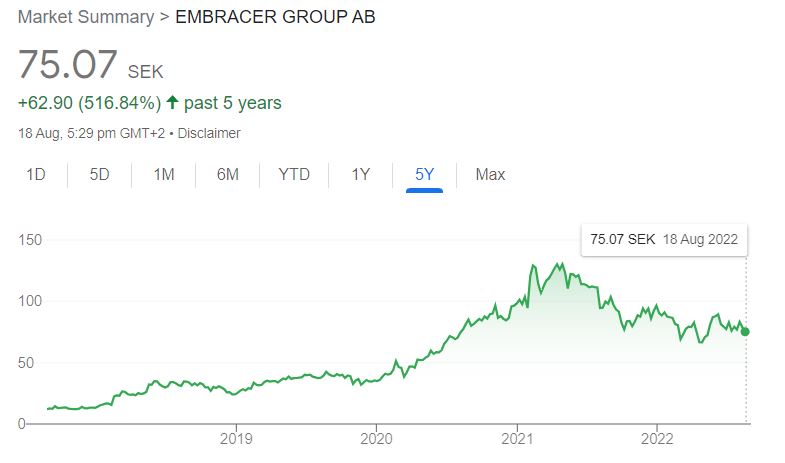
In addition, acquiring stuff does good work for the stock price of a company. I was surprised that there wasn’t a bump to Embracer’s share value yesterday since I would have assumed that the Middle-Earth license in particular would have been seen as a good pick-up by investors, but you can see the long-term effect of the company’s mass-acquisition strategy above. Embracer hasn’t done anything noteworthy outside of acquiring things in recent years. The line trending up over the very long term has to do with that.
The stock value going up is, of course, great news for the executives and board members, who would all hold stock, as well as the investors. In other words, the people who don’t care about anything other than seeing these lines go up. Is it good for games, though? Nope. The more a company acquires the more it sees everything that it owns as a simple commodity, and that means a few things:
- The moment the asset underperforms, it’s gone. When you’re a small studio or publisher with only a few games on your books, you work really hard to fix things if they go wrong. No Man’s Sky was a misfire to Hello Games at launch because it had very little else to rely on, so it rolled up its sleeves and got to work. If they had 850 other properties, they would have been much more likely to shrug their shoulders, fire (“make redundant”) the team responsible for the “mistake”, and go on to exploit one of the other 849 properties instead.
- There’s no incentive to actually care about the produce. This is particularly damaging when, like with Embracer, a significant chunk of its money comes from mobile games. All those properties that you love start to look like gacha money spinners in the eyes of a company that sees them as piles of gold to sit on rather than works of art.
- There’s no urgency to make games. Embracer has no need to get working on a new Kingdoms of Amalur game. It might eventually slot a new one into the schedule, but anyone who thought that Embracer buying that series – or any other one of its properties – is going to be sorely disappointed if they thought this would lead to a burst of activity around the property.
I’ve worked for companies that have been acquisition-heavy in the past, and there’s never the sense that there’s any particular creative reason for making them. These decisions are motivated entirely and purely by corporate interests, and if you haven’t figured this one out yet, the corporations in games are not friends to the arts, and also don’t really care about you, other than being a resource for them to tap. To get more money.
Just keep this in mind the next time Embracer waves around all the new stuff it’s added to the loot pile, and remember – that’s Embracer’s loot pile. Not yours. It’s only good for you if Embracer, a global conglomerate, wants to do the right thing.

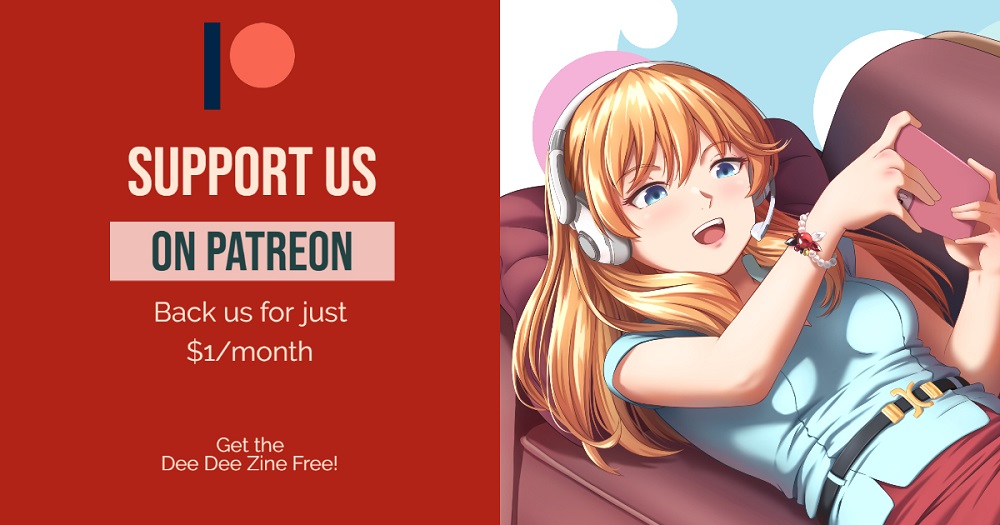
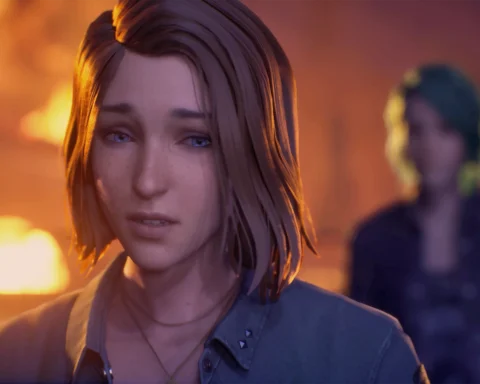
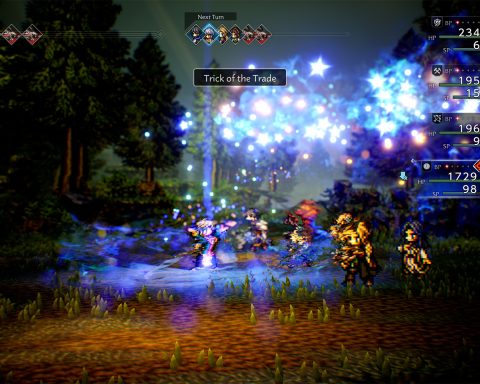


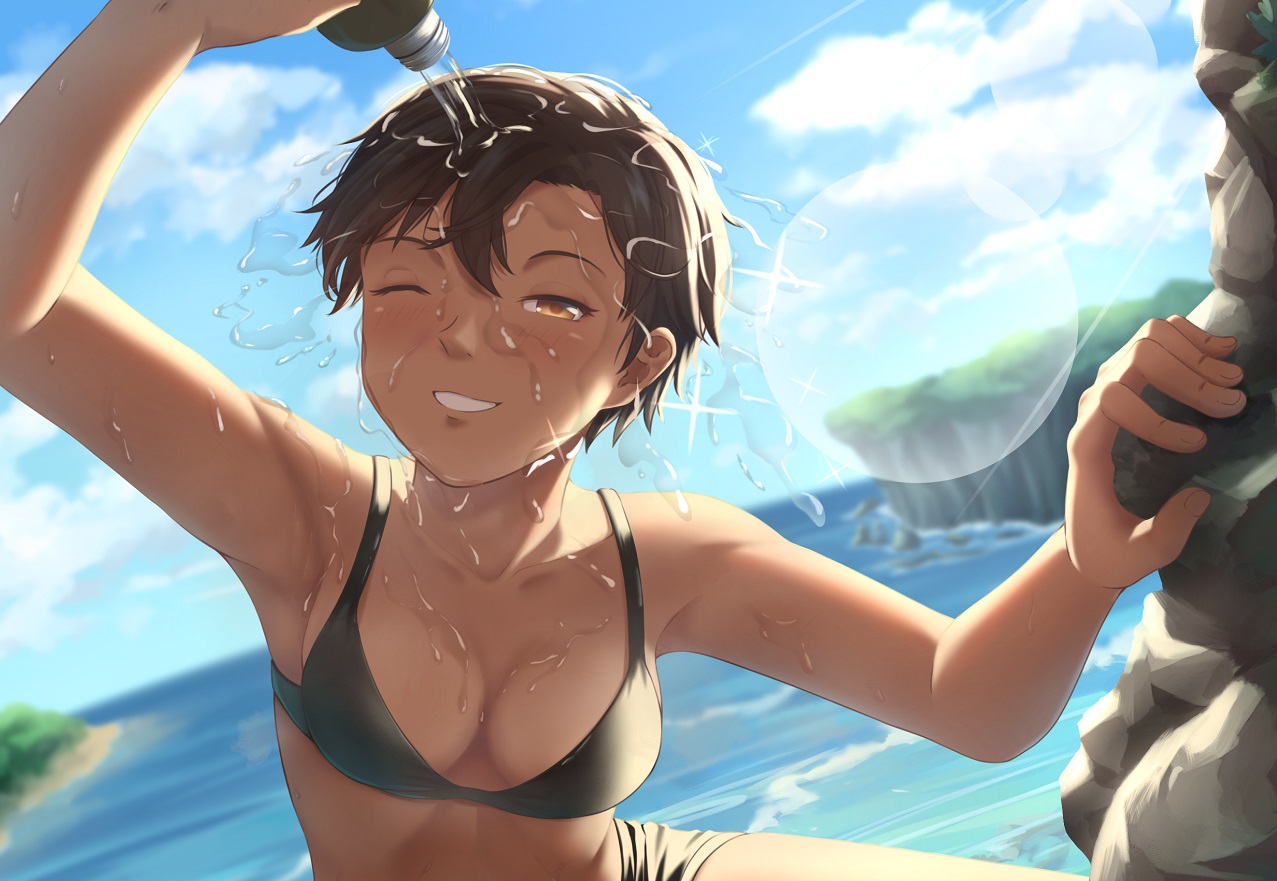





You didn’t even mention the biggest acquisition. Crystal dynamics and the rights to tomb raider.
Yes, that was an absolutely massive acquisition for a company of this size. It’ll be interesting to see what they do with it.
Actually I’m not that interested. I’m sure it’ll be more of the same.
They are just full of <3love<3 and want to embrace everyone, so nobody will feel excluded and unloved. No strings attached!
Hahaha, such a nice name for such a nasty corporation!
Corporations are unironically a threat to capitalism.
This was always the endgame for capitalism. The failing was in regulation and corrupted politicians benefitting far too much from winding back regulation over successive generations, allowing capitalism to chase the rabbit all the way down the hole.
I agree with pretty much every word here, Matt.
Also, the world of videogames evolves into a corporate dystopia just the way the music, TV and movie industries have in the past 20-30 years. Once those bottomless-pocketed investors started seeing the big dollar signs, it was inevitable. Needless to say, hard to find really good music, TV or movies these days. They exist, but you have to really, really look for it.
The people who don’t care about anything but the stock price lines going up unfortunately include Jim Ryan & Phil Spencer. Making that line go up is really their only job, and what their bosses (the shareholders & executive boards) judge their performance by. The videogame industry is in serious trouble from the standpoint of creativity and fun, and only a few non-acquired companies will be around in 10-20 years. Feels like the sun is setting: we need to enjoy what we can before videogames become all the quality of Netflix, Amazon Prime, and HBO ‘content’… 🤮.
The one positive with games is that there are platforms like itch.io that are quite open and easy to use for independent publishing. The B-tier of video games might disappear as it gets absorbed into these giant organisations, but the true indie spirit will always be around. Seriously itch.io is my favourite place to visit these days.
I enjoy itch too! However, I would say that things I find there are more “interesting games” than “great games”… Let’s see how things develop as the acquisition race continues apace.
Hahah, for me interesting does mean great, but I get what you mean 🙂
It’s very telling that some people who were loosing their minds because the Chinese Tencent was buying everything doesn’t seen to care the European Embraer is doing the same.
To expand on the article’s points:
The moment the IP underperform, they will either close the studio, firing everyone or reshuffle the devs. And you get problems like EA and Bioware. Famous for doing Mass Effect, they were told to work on Anthem and FIFA. Imagine knowing how to make rpg stories and then being ordered to make a story free FPS. Some of the development skills are not transferable to other game genres. Relearning takes time and it’s and learning effort you are not being paid extra to do.
If the studio closes due to underperforming, it does not mean they will do something with the IP. If you look at Konami, they have some of the best NES era IPs, and they are just sitting on it.
If a games performs well, they might just close studios and fire hundreds of people. That raises the group’s stock. Blizzard did it recently.
They can also fire people and consolidate 2-3 studios on a single one, reducing personnel on the group as a whole.
They are all awful management ideas, and yet they are common in the industry.
In some cases, shelving the IP is not even the worst case scenario. IP rules determines every X number of years you need to use the property. That’s how we got awful Fantastic 4 and X men movies.
Yes, one of the concerns about companies that grow like this is that there’s just no room for art. Nor any consideration. Everything gets lost in the hunt for more money, so it kills studios, creativity, and everything we love about these games.